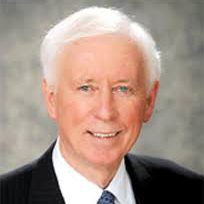Expert Conference on the Declaration of Helsinki
Today, distinguished ethicists, educators and government officials from around the world met in Cape Town, South Africa to begin a three-day conference to evaluate potential revisions of the Declaration of Helsinki (DOH).
The DOH was first adopted by the World Medical Association (WMA) in1975 and is a statement of ethical principles for medical research involving human subjects, including research on identifiable human material and data. It is widely recognized as a core standard for ethical research.
The DOH is the loadstone; the North Star if you will that guides physicians, governments and industry in the area of advice on doing medical research on human subjects.
The DOH has undergone multiple revisions over the years, but not to change core principles. The purpose before and now is to determine whether more guidance is needed to deal with the complexities of today’s world.
The process by which the WMA is conducting work on potential changes in the DOH is to draw on the expert opinion of a wide spectrum of leaders in ethics around the world and to work in a public, transparent way to reach agreement.
What gives special significance to the work being initiated here is that 2014 will mark the fifty-year anniversary of this important document.
And as this group deliberates I think it is important to remember some of the core principles detailed in the introduction to the Declaration of Helsinki.
Such as the following:
“Although the declaration is addressed primarily to physicians, the WMA encourages other participants in medical research involving human subjects to adopt these principles.
It is the duty of the physician to promote and safeguard the health of patients, including those who are involved in medical research.
The Declaration of Geneva binds the physician with the words. “The health of my patient will be my first consideration”.
The International Code of medical Ethics declares, “A physician shall act in the patient’s best interest when providing medical care.”
In medical research involving human subjects, the well being of the individual research subject must take precedence over all other interests.
Medical research is subject to ethical standards that promote respect for all human subjects and protect their health and rights.”
And finally:
“Physicians should consider the ethical, legal and regulatory norms and standards for research, involving human subjects in their own countries as well as applicable international norms and standards.”
In remarks at the opening session today I addressed the participants and shared my enthusiasm about the process being undertaken with the following:
“On behalf of the member associations of the World Medical Association and the patients and physicians we represent let me express my appreciation for your willingness to take time out of very busy lives to be a part of this effort.
I am awed by the experience, expertise and the international reputations you bring to this conference.
I thank you for your interest in this important subject and for your participation in this endeavor.
I look forward over the next three days to being educated and impressed.”
Preliminary plans are to conduct a similar expert conference in Tokyo next year, present an early draft document to the WMA Council in the Spring and the submit it for public comment.
I will report on proceedings of the conference in subsequent blogs.

